
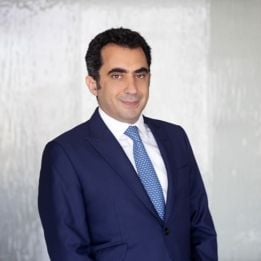
Chief legal officer and Company secretary | QInvest LLC


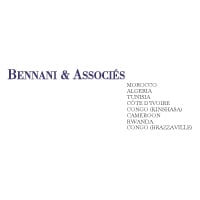
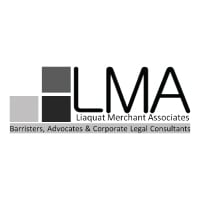
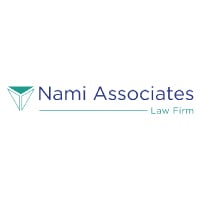
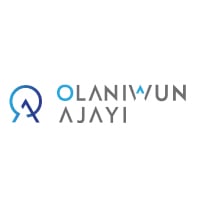
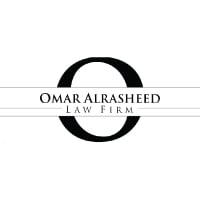

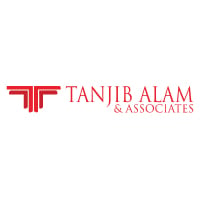


Toufic Abi Fadel
Chief legal officer and Company secretary | QInvest LLC
What are the key projects that you have been involved in over the past 12 months?
Over the past year, I have been involved in several significant projects at QInvest. These included the successful close of a $275m syndicated Sustainability-Linked Commodity Murabaha Facility, the first transaction of its kind in Qatar for a financial institution and among the first globally by an Islamic investment bank. This followed work to develop QInvest’s ESG framework, set emission targets, and introduce an ESG assessment methodology. The facility’s KPIs were aligned with the Net Zero Asset Managers Initiative (NZAMI) and the UN Principles for Responsible Investment (UNPRI), with annual milestones for QInvest to meet.
I also worked on the establishment of a $300m Real Estate and Alternative Investments fund, comprising ten assets located mainly in the US and UK. My role extended to various fund investments where QInvest acted as a limited partner, as well as the closing of a multi-million-dollar investment in a full-stack AI solutions provider.
In addition, I was involved in designing and implementing a comprehensive data protection framework for QInvest, ensuring compliance with the Qatar Financial Centre’s Data Protection Rules and Regulations.
How do you approach managing legal aspects during periods of instability or crises, and how does your legal strategy align with the broader business strategy to ensure the organisation’s resilience?
Legal strategy in a crisis is not purely defensive; it enables agile decision-making and safeguards long-term value. When aligned with business strategy, legal shifts from being a cost centre to a resilience and growth enabler.
Periods of instability or crises require a proactive, integrated, and risk-focused approach that aligns closely with our broader business strategy to ensure resilience and continuity. We begin with risk assessments and scenario planning to identify potential legal vulnerabilities, ensuring that legal is embedded early in business risk discussions to avoid reactive responses that could disrupt operations.
Legal is also integrated into crisis response teams to provide real-time guidance. Our continuity planning aligns legal tools – such as force majeure clauses, insurance, and employment policies – with broader operational plans, helping to protect both operational and reputational integrity.
Stable relationships and a secure supply chain help sustain long-term goals, mitigate disputes, and maintain trust. We review key contracts, invoke protective clauses where necessary, and engage with regulators, investors, suppliers, and customers to achieve this.
During periods of instability, legal also works closely with communications teams to ensure accurate, compliant messaging and transparent disclosures to regulators, investors, and the media.
What do you think are the most important attributes for a modern in-house counsel to possess?
A modern in-house counsel must be a hybrid of lawyer, strategist, and business partner, combining legal expertise with commercial pragmatism, technological literacy, and leadership to create value and protect the enterprise.
They need a strong commercial mindset and a clear understanding of the company’s business model, industry drivers, and strategy. It is essential to balance risk management with enabling growth, offering solutions rather than simply flagging risks.
A core part of the role involves risk management and resilience orientation, enabling the team to anticipate legal and regulatory risks before they materialise and provide steady, pragmatic counsel during periods of volatility or disruption. Legal leaders should strengthen organisational resilience and navigate uncertainty with confidence.
Advice must be clear and actionable to support swift decision-making in fast-paced environments. Legal solutions should facilitate digital transformation, new business models, and entry into emerging markets.
Strong communication and influence are also critical. This allows legal counsel to simplify complexity, translating legal issues into plain language for non-lawyers. Counsel must build credibility with senior leaders and regulators and help shape key decisions, rather than merely providing input.
Emotional intelligence and leadership are central to this role, helping to build trust across teams and manage internal clients diplomatically. A modern in-house counsel should strive to develop and mentor legal teams while fostering a high-performance, adaptable culture, ultimately enabling counsel to navigate organisational politics and drive alignment.
Chief legal officer and board secretary | QInvest
Chief legal officer | Barzan Holdings
Chief legal officer | Barzan Holdings
Chief legal officer | Barzan Holdings
Starting his in-house career in 2010 with Qatar Development Bank where he was heading the company’s in-house department for six years, Toufic Abi Fadel followed this with a position as...
legal manager (general counsel) | Qatar Development Bank, Qatar
Toufic Abi Fadel has led some of Qatar Development Bank’s most significant transactions of recent times. Since becoming the bank’s general counsel in 2010, he has built a four-strong legal...
General counsel | Qatar First Bank (QFB)
Qatar First Bank is a Doha headquartered bank and one of the first Shari’ah compliant financial institution regulated by the Qatar Financial Centre Regulatory Authority. Formed in 2009, the bank...